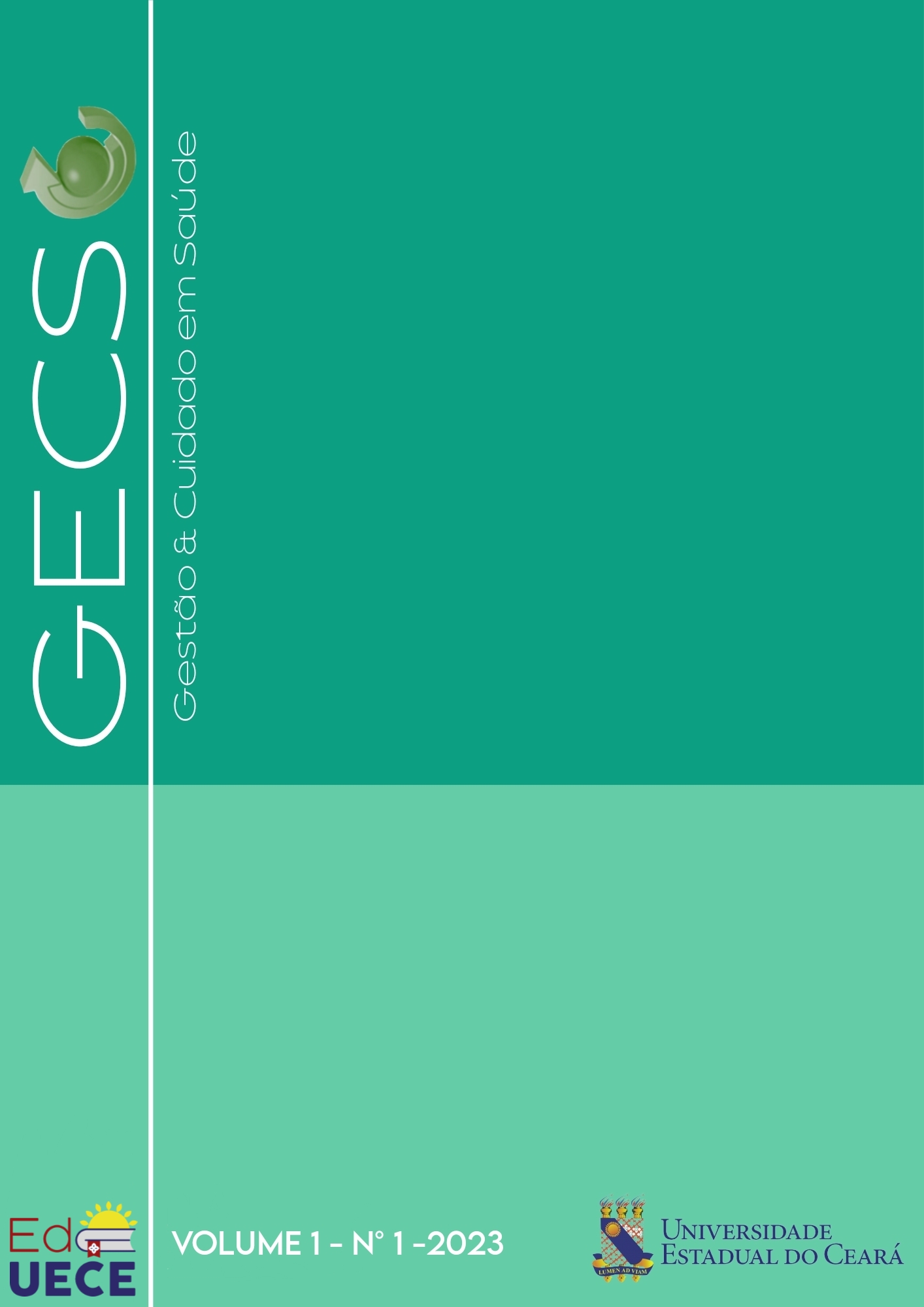Eating behavior in postpartum black women with obesity
DOI:
https://doi.org/10.70368/gecs.v1i1.12204Keywords:
Postpartum, Obesity, Eating behaviorAbstract
This work aims to describe the eating behavior of postpartum black women with obesity. This is a cross-sectional study, in which 82 black women with obesity in the postpartum period were included. The sociodemographic, gestational, anthropometric characteristics and eating behavior of postpartum women were evaluated. Eating behavior was assessed using the Dutch Eating Behavior Questionnaire. Principal components analysis was used to highlight the three dimensions of the Dutch Eating Behavior Questionnaire (i.e., emotional, restrictive and external), considering factor loading >0.4 and <-0.4. The analyzes were carried out using SPSS 22.0 software. The average age of the women was 29 years (±5.7) and the current Body Mass Index diagnosed Grade 2 Obesity (33.8 ±3.85). More than 70% of volunteers carried out 7 consultations or more during prenatal care. The eating behavior with the highest average score was external eating behavior (30 ±5.7), followed by emotional eating behavior (26 ± 6.8) and restrictive eating behavior (22 ±3.1). Postpartum black women with obesity presented three dimensions of eating behavior, in which external eating behavior was more prominent among those investigated.
References
ALVARENGA, M.S.; SCAGLIUSI, F. B.; PHILIPPI, S.T. Comportamento de risco para transtorno alimentar em universitárias brasileiras. Archives of Clinical Psychiatry (São Paulo), v. 38, p. 03-07, 2011. Disponível em: https://www.scielo.br/j/rpc/a/hMmvJxRbLYtWm6ktCmFyY3w/. DOI: https://doi.org/10.1590/S0101-60832011000100002
ALMEIDA, G. A. N; LOUREIRO, S. R; SANTOS, J. E. Obesidade mórbida em mulheres – Estilos alimentares e qualidade de vida. Arch Latinoam Nutr.; v. 51, n. 4, p. 359-65, 2001. Disponível em: https://ve.scielo.org/scielo.php?script=sci_arttext&pid=S0004-06222001000400006.
ASHLEY, W. The angry black woman: the impact of pejorative stereotypes on psychotherapy with black women. Social work in public health, v. 29, n. 1, p. 27–34, 2 jan, 2014. Disponível em: https://pubmed.ncbi.nlm.nih.gov/24188294/. DOI: https://doi.org/10.1080/19371918.2011.619449
BAILEY, Z. D. et al. Structural racism and health inequities in the USA: evidence and interventions. Lancet (London, England), v. 389, n. 10077, p. 1453–1463, 2017. Disponível em: https://pubmed.ncbi.nlm.nih.gov/28402827/. DOI: https://doi.org/10.1016/S0140-6736(17)30569-X
BIGGS, S.; HAAPALA, I. Intergenerational commensality: A critical discussion on non‐familial age groups eating together. International Journal of Environmental Research and Public Health, v. 18, n. 15, 2021. Disponível em: https://pubmed.ncbi.nlm.nih.gov/34360195/. DOI: https://doi.org/10.3390/ijerph18157905
BILICI, S. et al. Factors affecting emotional eating and eating palatable food in adults. Nutrition Research and Practice, v. 14, n. 1, p. 70, 2020. Disponível em: https://www.ncbi.nlm.nih.gov/pmc/articles/PMC6997140/. DOI: https://doi.org/10.4162/nrp.2020.14.1.70
BROWN, A. Maternal restraint and external eating behaviour are associated with formula use or shorter breastfeeding duration. Appetite, v. 76, p. 30–35, 2014. Disponível em: https://pubmed.ncbi.nlm.nih.gov/24463067/. DOI: https://doi.org/10.1016/j.appet.2013.12.022
CREAR-PERRY, J. et al. Social and Structural Determinants of Health Inequities in Maternal Health. Journal of women’s health (2002), v. 30, n. 2, p. 230–235, 2021. Disponível em: https://pubmed.ncbi.nlm.nih.gov/33181043/. DOI: https://doi.org/10.1089/jwh.2020.8882
DAVIS, D. A. Obstetric Racism: The Racial Politics of Pregnancy, Labor, and Birthing. Medical anthropology, v. 38, n. 7, p. 560–573, 2019. Disponível em: https://pubmed.ncbi.nlm.nih.gov/30521376/. DOI: https://doi.org/10.1080/01459740.2018.1549389
DE QUEIROZ, F. L. N. et al. Eating Competence, Food Consumption and Health Outcomes: An Overview. International journal of environmental research and public health, v. 19, n. 8, 2022. Disponível em: https://pubmed.ncbi.nlm.nih.gov/35457352/. DOI: https://doi.org/10.3390/ijerph19084484
EXUM, A. C.; TEMPLIN, J.; FAZZINO, T. L. Bridging gaps by including culture: Development and empirical test of the culturally informed theory for disordered eating among Black women. Eating behaviors, v. 44, 2022. Disponível em: https://pubmed.ncbi.nlm.nih.gov/35152181/. DOI: https://doi.org/10.1016/j.eatbeh.2022.101600
FARPOUR-LAMBERT, N. J. et al. Obesity and Weight Gain in Pregnancy and Postpartum: an Evidence Review of Lifestyle Interventions to Inform Maternal and Child Health Policies. Frontiers in Endocrinology, v. 9, p. 546, 2018. Disponível em: https://pubmed.ncbi.nlm.nih.gov/30319539/. DOI: https://doi.org/10.3389/fendo.2018.00546
GOLDSTEIN, R. F. et al. Association of Gestational Weight Gain With Maternal and Infant Outcomes: A Systematic Review and Meta-analysis. JAMA, v. 317, n. 21, p. 2207-2225, 2017. Disponível em: https://pubmed.ncbi.nlm.nih.gov/28586887/. DOI: https://doi.org/10.1001/jama.2017.3635
HOWARD, L. M. et al. Is use of social networking sites associated with young women’s body dissatisfaction and disordered eating? A look at Black–White racial differences. Body Image, v. 23, p. 109–113, 2017. Disponível em: https://pubmed.ncbi.nlm.nih.gov/28965051/. DOI: https://doi.org/10.1016/j.bodyim.2017.08.008
HWANG, Y. et al. Exploring Abnormal Behavior Patterns of Online Users With Emotional Eating Behavior: Topic Modeling Study. Journal of Medical Internet Research, v. 22, n. 3, 2020. Disponível em: https://pubmed.ncbi.nlm.nih.gov/32229461/. DOI: https://doi.org/10.2196/15700
IBGE. Censo 2022: pela primeira vez, desde 1991, a maior parte da população do Brasil se declara parda. Disponível em: https://agenciadenoticias.ibge.gov.br/agencia-noticias/2012-agencia-de-noticias/noticias/38719-censo-2022-pela-primeira-vez-desde-1991-a-maior-parte-da-populacao-do-brasil-se-declar 20cerca%20de%2092,0%2C4%25)%2C%20amarelas. Acesso em 22 de janeiro de 2024.
JEFFERS, N. K. et al. Investigating the Impact of Structural Racism on Black Birthing People - Associations Between Racialized Economic Segregation, Incarceration Inequality, and Severe Maternal Morbidity. Social science & medicine (1982), v. 317, p. 115622, 2023. Disponível em: https://pubmed.ncbi.nlm.nih.gov/36542927/. DOI: https://doi.org/10.1016/j.socscimed.2022.115622
KEBBE, M. et al. Infant Feeding Varies Across Eating Behavior and Feeding Modalities in Low-Income Mothers. Journal of nutrition education and behavior, v. 54, n. 9, p. 827–834, 2022. Disponível em: https://pubmed.ncbi.nlm.nih.gov/35764453/. DOI: https://doi.org/10.1016/j.jneb.2022.03.004
KRIEGER, N. Methods for the scientific study of discrimination and health: an ecosocial approach. American journal of public health, v. 102, n. 5, p. 936–945, 2012. Disponível em: https://www.ncbi.nlm.nih.gov/pmc/articles/PMC3484783/. DOI: https://doi.org/10.2105/AJPH.2011.300544
LOMBARD, C. et al. Preventing weight gain: the baseline weight related behaviors and delivery of a randomized controlled intervention in community based women. BMC Public Health, v. 9, p. 2, 2009. Disponível em: https://bmcpublichealth.biomedcentral.com/articles/10.1186/1471-2458-9-2. DOI: https://doi.org/10.1186/1471-2458-9-2
MIDDLETON, G. et al. The family meal, a ritual frozen in time; an Australian grounded theory study. Health promotion international, v. 38, n. 5, 2023. Disponível em: https://academic.oup.com/heapro/article/38/5/daad124/7288730. DOI: https://doi.org/10.1093/heapro/daad124
ROMANO, M. et al. Postpartum period: three distinct but continuous phases. Journal of Prenatal Medicine, v. 4, n. 2, p. 22, 2010. Disponível em: https://pubmed.ncbi.nlm.nih.gov/22439056/.
SCANDER, H.; WIKLUND, M. L.; YNGVE, A. Assessing Time of Eating in Commensality Research. International journal of environmental research and public health, v. 18, n. 6, p. 1–13, 2021. Disponível em: https://pubmed.ncbi.nlm.nih.gov/22439056/. DOI: https://doi.org/10.3390/ijerph18062941
SKOLARUS, L. E. et al. Considerations in Addressing Social Determinants of Health to Reduce Racial/Ethnic Disparities in Stroke Outcomes in the United States. Stroke, v. 51, n. 11, p. 3433–3439, 2020. Disponível em: https://pubmed.ncbi.nlm.nih.gov/33104471/. DOI: https://doi.org/10.1161/STROKEAHA.120.030426
STEWART, T. M.; MARTIN, C. K.; WILLIAMSON, D. A. The Complicated Relationship between Dieting, Dietary Restraint, Caloric Restriction, and Eating Disorders: Is a Shift in Public Health Messaging Warranted? International Journal of Environmental Research and Public Health, v. 19, n. 1, p. 491, 2022. Disponível em: https://www.ncbi.nlm.nih.gov/pmc/articles/PMC8745028/. DOI: https://doi.org/10.3390/ijerph19010491
TAVERAS, E. M. et al. Association of breastfeeding with maternal control of infant feeding at age 1 year. Pediatrics, v. 114, n. 5, 2004. Disponível em: https://pubmed.ncbi.nlm.nih.gov/15492358/. DOI: https://doi.org/10.1542/peds.2004-0801
VARTANIAN, L. R.; PORTER, A. M. Weight stigma and eating behavior: A review of the literature. Appetite, v. 102, p. 3–14, 2016. Disponível em: https://pubmed.ncbi.nlm.nih.gov/26829371/. DOI: https://doi.org/10.1016/j.appet.2016.01.034
VIANA V.; SINDE, S. Estilo alimentar: adaptação e validação do questionário holandês do comportamento alimentar. Psicologia: Teoria, Investigação e Prática, v. 1, p. 59-71, 2003. Disponível em: https://www.researchgate.net/publication/236649218_ESTILO_ALIMENTAR_Adaptacao_e_validacao_do_Questionario_Holandes_do_Comportamento_Alimentar.
WARDLE, J.; CARNELL, S. Appetite is a heritable phenotype associated with adiposity. Annals of Behavioral Medicine, v. 38, n. SUPPL., 2009. Disponível em: https://pubmed.ncbi.nlm.nih.gov/19730964/. DOI: https://doi.org/10.1007/s12160-009-9116-5
WILLIAMSON, K. E. The iatrogenesis of obstetric racism in Brazil: beyond the body, beyond the clinic. Anthropology and Medicine, v. 28, n. 2, p. 172–187, 2021. Disponível em: https://pubmed.ncbi.nlm.nih.gov/34180281/. DOI: https://doi.org/10.1080/13648470.2021.1932416
Downloads
Published
How to Cite
Issue
Section
Categories
License
Copyright (c) 2024 Pabyle Alves Flauzino, Ilana Nogueira

This work is licensed under a Creative Commons Attribution 4.0 International License.













